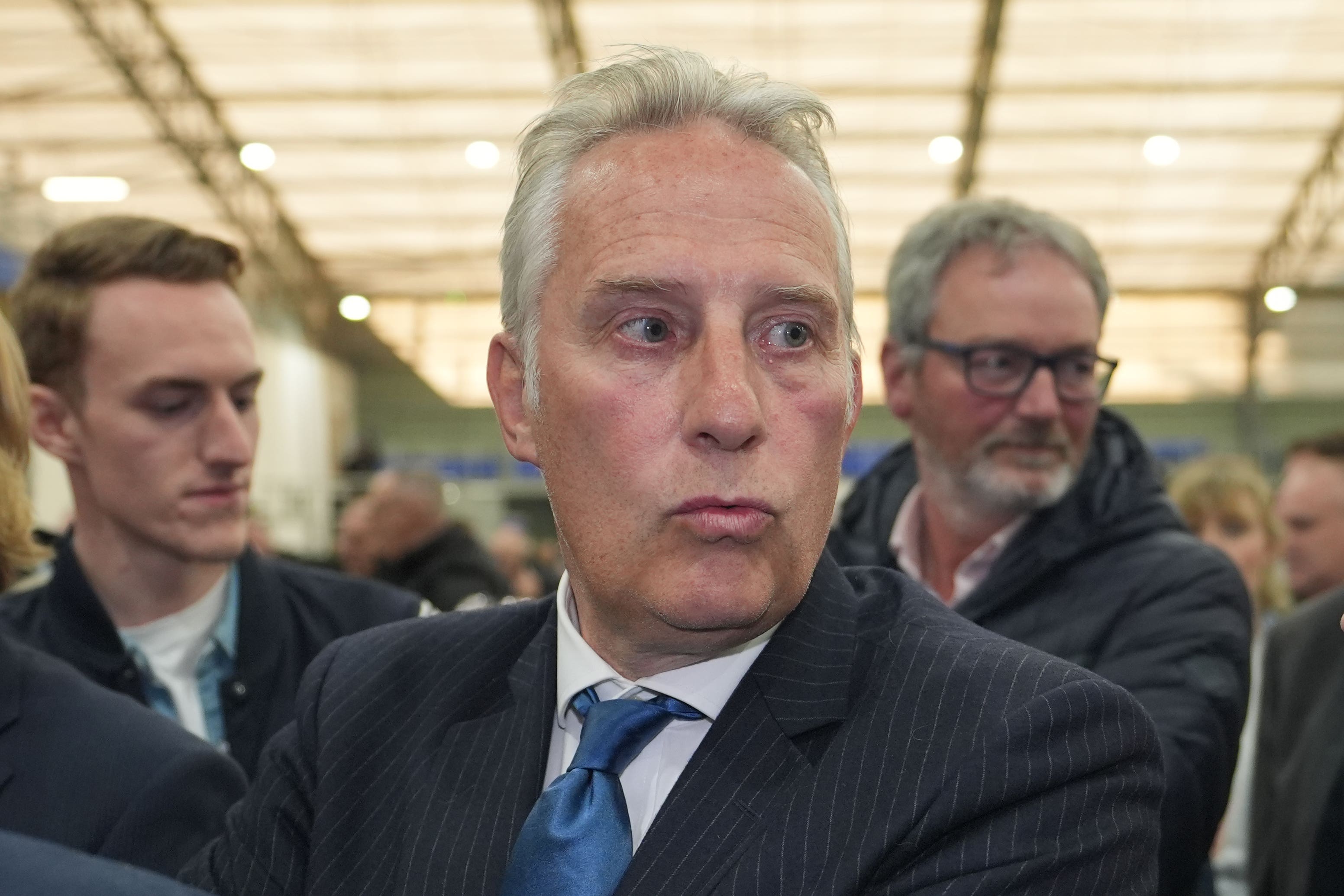One of the most significant successes in the general election is of a party that will not be represented in the House of Commons. The historic achievement, instead, will be used by Sinn Fein in its campaign to get Northern Ireland out of the United Kingdom.
The Irish nationalist party has become the North’s largest Westminster party. It is already the largest party at the Northern Ireland Assembly at Stormont and in local government in the country, with its main rivals, the Democratic Unionist Party (DUP), in disarray after losses on an unexpected scale.
The DUP lost three of the eight seats it secured at the last election. The most surprising defeat – and a greatly symbolic one – is that of Ian Paisley Jr in North Antrim, which had been in his family for more than 50 years. It was previously held by one of the most controversial figures of the Troubles, his father and former Northern Ireland first minister the Reverend Ian Paisley.
The party also lost the Lagan Valley seat which had been vacated by its former leader, Sir Jeffrey Donaldson, who faces sexual offences charges, and saw its majorities reduced elsewhere; Sinn Fein came within 179 votes of taking East Londonderry, a hitherto staunch DUP seat.
Sinn Fein will not be taking up its seats in the Commons, as has been the case for more than a century, to show its opposition to British rule in Northern Ireland. It will instead use its position of strength to press the new Labour government to agree to a definitive timeline for a referendum on Irish unification.
Sir Keir Starmer has stated that such a vote is “not on the horizon” and will campaign for Northern Ireland to remain part of the United Kingdom if a referendum was held in his lifetime. The Good Friday Agreement, however, stipulates that a unification referendum must be called if it “appears likely” a majority would favour a united Ireland. The nationalists hold that history, and political momentum, are on their side.
Sinn Fein says things are moving rapidly in a dynamic environment. Michelle O’Neill, who became the first ever Irish nationalist to be appointed first minister since Northern Ireland came into being as a Protestant majority state in 1921, insists that a unification vote is eminently possible.
Ms O’Neill, whose father was interned as a member of the Provisional IRA and whose cousin, also in the IRA, was shot dead by the SAS in 1991, had exchanged letters with King Charles, attended his coronation and had been to the late Queen’s funeral.
Ms O’Neill declared: “It’s time for a change, it’s time for us to take control of our own fortunes here. We now have the opportunity to do something better.”
Earlier this year, she said she “absolutely contests” that a referendum was improbable. “There are so many things that are changing, all the old norms, the nature of the state, the fact that a nationalist republican was never supposed to be first minister. That all speaks to the change taking place,” she said.
The Catholic population now outnumbers Protestants in Northern Ireland. Opinion polls, nevertheless, continue to show that the majority of voters would vote for remaining in the UK, rather than joining Ireland.
The unionist support, however, is now fragmented across three parties.
The DUP has replaced the UUP (Ulster Unionist Party) as the main unionist power base but it has lost South Antrim to the UUP, giving the party, which had been dominant for much of Northern Ireland’s history, a solitary seat.
The DUP had been an important player in Westminster when it propped up Theresa May’s government after the 2017 election with its 10 seats and had a prominent role in the Brexit debate. The party opposed the imposition of a trade border in the Irish Sea and had clashed repeatedly with the UK government in the last years, and was waiting to see whether it got a better deal from a new government.
Paisley Jr lost his seat to Jim Allister, of the TUV (Traditional Unionist Voice) which is fiercely opposed to power sharing and has been making inroads into DUP support. TUV had been backed by Reform but Nigel Farage gave his personal support to his “ beer buddy”, Paisley. “I might say, I’m here in spite of you, Nigel,” said Allister in his victory speech.
The “Fall of the House of Paisley”, as it’s being called, is a potent sign of an evolving landscape in Northern Ireland. Despite Starmer’s seemingly adamant stance, the campaign for a referendum on united Ireland, led by a first minister from an IRA family who has built up warm relations with King Charles, may yet end up being successful.
Credit: Source link




